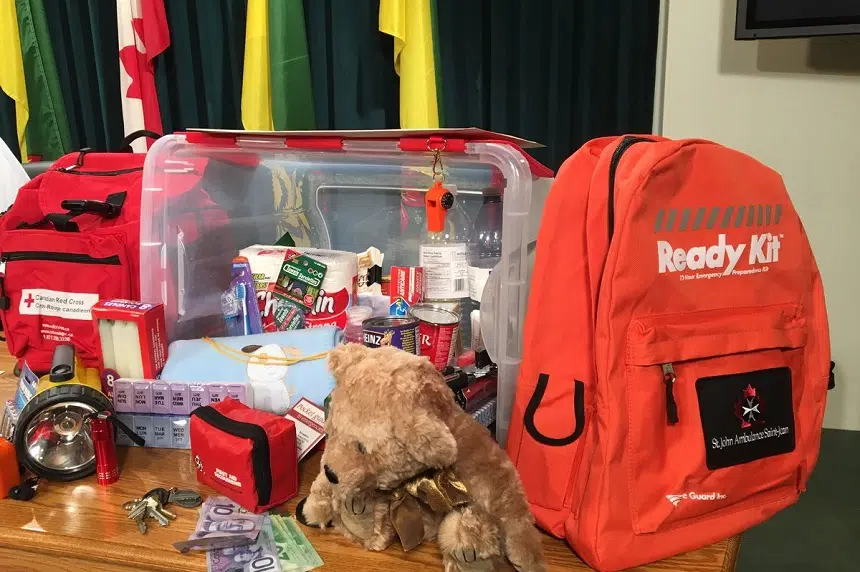As the risk of wildfires remains high across Saskatchewan, the province is reminding residents and municipal leaders to make sure they’re prepared for any kind of emergency.
Officials with the province highlighted emergency kits and plans at the legislature on Monday to mark Emergency Preparedness Week.
Duane McKay, commissioner of emergency management and fire safety for the province, joined Gormley Tuesday to talk about why it’s important to be ready before disaster strikes — noting Monday evening’s grass fire which claimed three homes in Kannata Valley.
“Some of the wildfires have caused people to evacuate or to move rapidly in fear of what might happen and it’s only then that people think about what they need to have,” McKay said.
He said making a plan, packing an emergency kit and preparing copies of important documents can help someone when they need to grab everything and move quickly.
“Have a look around, be prepared, make sure that you can evacuate when necessary very quickly,” McKay said.
“That’s going to make a very dire situation a lot more comfortable in terms of the stress that you might feel.”
The province provides a step-by-step guide on how to prepare for emergencies online.
An emergency kit should include basic supplies like a first aid kit, medications, flashlight, a crank or battery-operated radio, extra batteries, phone chargers, extra car keys and cash. It should also include a three-day supply of non-perishable food, four litres of water per-person per day, cooking supplies and a manual can-opener. Packing extra evacuation supplies like clothing, sleeping bags and personal items is also recommended.
Deputy Commissioner of Fire Safety and Emergency Management Ray Unrau added to the evacuation pack suggestions, highlighting the importance of having copies of important documents.
“You can’t always rely on having a picture on your phone, you’re going to need to have some type of paper copies when you’re trying to get insurance when you are in a reception centre if that’s the circumstance you’re in,” Unrau noted.
As examples, he listed drivers’ licenses, health cards, passports, birth certificates, marriage certificates and insurance policy information as important copies to have in the event of an emergency.
Unrau also highlighted the importance of writing up an emergency plan that includes a family communication plan with contacts who live far enough away that they won’t be affected by the same emergency.
Evacuation plans should include a route, safe meeting places and should account for anyone with special medical needs and pets.
Unrau added it’s important for everyone to think about their emergency plan in the context of their situation. For example, agriculture producers who have to worry about protecting livestock might need to make a different plan than someone in a city.
The province is also using this week to encourage all municipalities to work together to come up with regional plans to respond to any kind of natural disaster or emergency situation.











